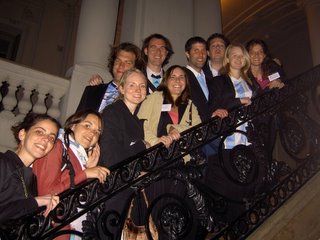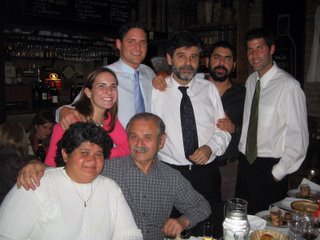Yanquis
The origin of the term Yankee is blurry.
If anyone cares, some claim Yankee was a derogatory term the English slapped on the Dutch in the early
Whatever the origin, the use of the term Yankee (or yanqui as it’s spelt down here) is common place in
Note: since Canadians are always confused with Americans, they often fall into the yanqui category. Since the term is not derogatory and I don’t have any serious reservations about being mistaken for an American, I have come to accept being mislabelled as a yanqui-argentino.
Most Argentines, myself included, generally enjoy the growing presence yanqui expats or at the very least get great laughs from mocking the stereotypical yanqui tourists. Many of the expats I’ve met down here are well-educated, cultured, and have embraced Argentine society with a passion I have never witnessed.
My opinion of the gringo community in
Degenerates aside, most people visit
While
While there are countless tourist traps and sex tourism businesses, Buenos Aires is so large and offers so much more, that it is not in danger of becoming a 1950s Havanna or a modern day San José.
The expats I have met and befriended in the past few months provide some anecdotal evidence for this generalization.
In the social sector, I became good friends with the director of HelpArgentina, Lloyd Nimetz, as well as a various inspirational members of the team. The organization provides a fundraising bridge between the international donor community and the Argentine social sector.
Although it is a relatively new organization, they have undertaken the ambitious mission of connecting over 30 hardworking, yet often isolated and financially constrained nonprofits with the global philanthropic marketplace. By becoming part of HelpArgentina’s network, an NGO is certified as a transparent, efficient and ethical organization. This certification in turn leads to greater credibility and visibility in the international donor community.
This past month I attended their award ceremony titled Social Ambassadors 2005, Solidarity without Borders. I watched five people working overseas to help the Argentine social sector receive recognition for their work.

Picture: Here are members of the HelpArgentina staff after the award ceremony.
Two weeks later, HelpArgentina held their first annual International Solidarity Night. The event mobilized 1200 people to participate in 80 dinners in 24 cities, in 11 countries, in order to raise money for 26 different social organizations in
My family, along with Lloyd, hosted a dinner to support Los Piletones neighbourhood council. My grandfather, who has been volunteering in the barrio for a few years now, has always pointed out that a huge obstacle to development is the lack of sustainable funding for vital infrastructure. He was pleasantly surprised by how such a young, expat-led organization, such as HelpArgentina, could demonstrate such a strong sense of international solidarity.
My father, who lives in
Through the blogosphere, I have kept up with several interesting expat journals.
A couple of more expat blogs which have caught my eye are: GoodAirs and Buenos Aires, City of Faded Elegance. At GoodAirs, Ian and Cintra cover a wide variety of contemporary issues from an inquisitive, and often humourous, journalistic point of view. At City of
Lastly - as I realize what time it is - I have Monday night soccer games with a group of American and European expats. The level of play is surprisingly competitive. Not quite as cut throat as playing with a bunch of Argentines, but at least the sportsmanship means that we can all enjoy post-game drinks and pizza without holding any game-time grudges…




